Food Avoid

How do I avoid getting sick from eating local street food ?
Eating local street food is a great way to experience the culture and flavors of a new place. However, it can also be a source of foodborne illness if you're not careful. Here are some tips to help you avoid getting sick from eating local street food: Choose busy stalls or restaurants that appear clean and well-maintained. Avoid raw or undercooked meat and seafood, as they can harbor harmful bacteria and parasites. Be wary of street vendors selling pre-packaged foods, as these items can sometimes be exposed to contaminants during storage and handling. Use bottled water for drinking and cleaning utensils before eating. Bring your own reusable utensils to reduce your exposure to potentially harmful chemicals found in some plastic utensils. Practice good hygiene habits such as washing your hands before eating and avoiding touching your face while eating.
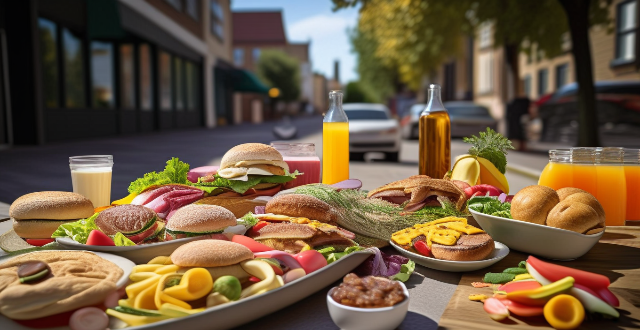
Is it safe to eat street food when traveling in China, and how can I avoid getting sick ?
Street food in China can be a delightful culinary experience, but it's important to take precautions to avoid food safety issues. Risks include bacterial contamination, food poisoning, and allergic reactions. However, street food offers cultural immersion, affordability, and diverse options. To minimize health risks, choose reputable vendors, avoid risky foods, practice good hygiene, start with small portions, and drink bottled water. By being cautious, you can safely enjoy the delicious street food in China.

What are some ways to save money on food while traveling ?
Here are ten ways to save money on food while traveling: 1. Eat local street food for affordable and delicious options. 2. Cook your own meals if you have access to a kitchen or cooking facilities. 3. Pack snacks from home to avoid expensive airport or convenience store prices. 4. Avoid tourist traps and look for places where locals eat for authentic and affordable cuisine. 5. Use discount apps and coupons to save money on food and drink at local establishments. 6. Share meals with friends or family members to enjoy a variety of dishes without spending too much money. 7. Drink tap water instead of buying bottled water to save money. 8. Take advantage of hotel breakfasts to save money on breakfast costs. 9. Visit local markets for fresh produce, meats, and other ingredients that are cheaper than grocery stores or restaurants. 10. Choose budget-friendly restaurants that cater to locals rather than tourists for good food at reasonable prices.

How can I avoid overspending on Black Friday ?
How to Avoid Overspending on Black Friday: Make a list, set a budget, research prices, use cashback apps, avoid impulse buying, shop with a friend, don't fall for marketing gimmicks, consider Cyber Monday deals.
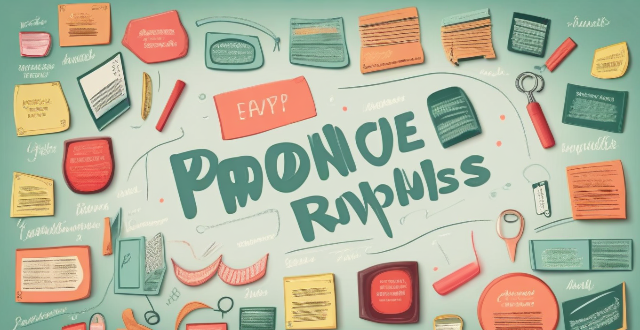
How do I avoid impulse buying and stick to my shopping list ?
The text provides tips on how to avoid impulse buying and stick to a shopping list. It emphasizes the importance of identifying needs, categorizing the list, setting a budget, not shopping when hungry, using cash instead of cards, avoiding window shopping, and practicing self-control. By following these steps, one can make conscious decisions about purchases and avoid overspending and clutter in the home.
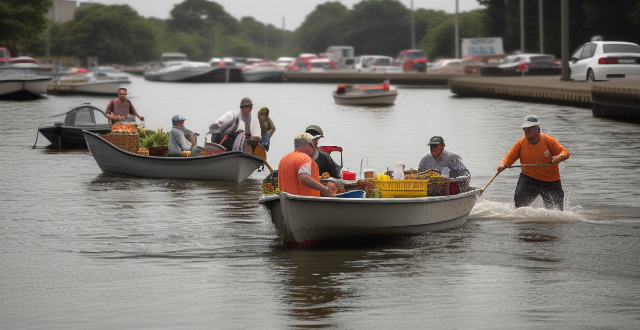
How do street food vendors keep their food safe and hygienic ?
Street food vendors play a crucial role in providing affordable and delicious meals to millions of people worldwide. However, ensuring that their food is safe and hygienic can be challenging due to various factors such as limited space, lack of proper equipment, and unpredictable weather conditions. In this article, we will discuss some effective ways street food vendors can maintain the safety and cleanliness of their food.
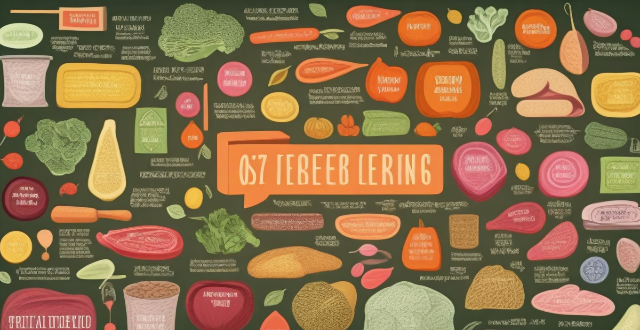
How does food labeling contribute to food safety ?
Food labeling is crucial for food safety as it provides consumers with essential information. It includes ingredient lists, nutritional information, expiration dates, manufacturing details, storage instructions, certification marks, allergy warnings, country of origin, precautionary statements, and environmental impact information. Proper labeling practices help identify ingredients, understand nutritional values, recognize potential risks, and make informed decisions about food consumption.
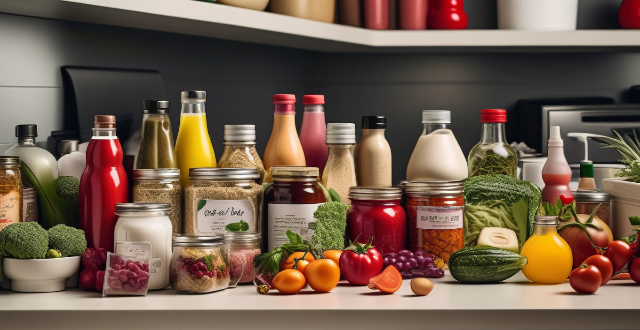
How can I reduce food waste in my kitchen ?
To reduce food waste in your kitchen, you can plan meals ahead of shopping, shop smart by making a list and buying fresh produce, store foods properly using airtight containers, understand expiration dates, preserve food through techniques like freezing and dehydrating, get creative with leftovers, practice portion control, and educate yourself on the environmental impact of food waste.
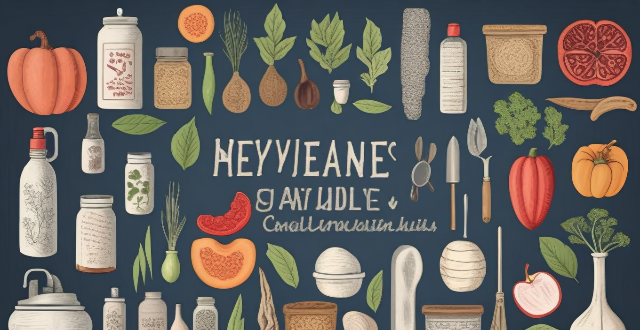
What are the key principles of food safety ?
The text outlines the key principles of food safety, which include cleanliness, avoiding cross-contamination, thorough cooking, proper storage, and using safe water and ingredients. By following these guidelines, individuals can reduce the risk of foodborne illnesses and ensure that their meals are safe for consumption.
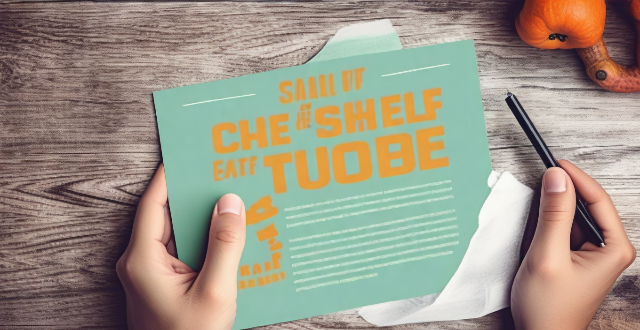
How can consumers check if their food is safe to eat ?
Consumers can check if their food is safe to eat by checking expiration dates, looking for signs of spoilage, reading labels carefully, practicing proper food handling, and using a food safety app.
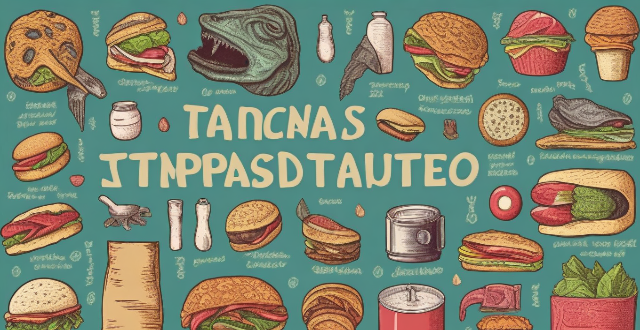
How does temperature control affect food safety ?
This text discusses the impact of temperature control on food safety, emphasizing the risks associated with improper temperature management and the benefits of maintaining appropriate temperatures. It highlights the danger zone for bacterial growth, spoilage due to mold and yeast, and toxin production from bacteria. The article also outlines best practices for temperature control in refrigeration, freezing, cooking, reheating, handling, and storage to ensure food safety.

What are some tips for eating street food safely while traveling ?
When traveling, street food can be a delightful way to explore new flavors and cultures. However, it's essential to take precautions to ensure that your culinary adventures don't lead to illness. Here are some tips for eating street food safely while traveling: 1. Research Before You Go 2. Look for Cleanliness 3. Choose Busy Vendors 4. Stick to Cooked Foods 5. Avoid Raw Produce 6. Drink Bottled Beverages 7. Watch How the Food is Cooked 8. Trust Your Instincts
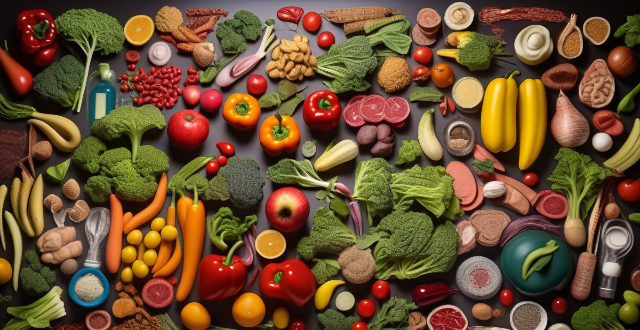
What role do food safety audits play in ensuring food quality ?
Food safety audits play a crucial role in ensuring food quality, identifying potential hazards and risks, ensuring compliance with regulations and standards, and maintaining customer trust. Companies should prepare for audits by reviewing relevant documents, conducting on-site audit activities, and following up with action plans to address any identified issues. By prioritizing food safety audits, companies can build a strong reputation for producing safe and healthy products, leading to increased customer loyalty and sales.

What are the key elements of a stunning food photograph ?
A stunning food photograph is not just about capturing the visual appeal of the dish, but also about conveying the sensory experience and emotions associated with it. Here are the key elements that can help you create a captivating food photograph: - Composition: Rule of Thirds, Leading Lines, Negative Space - Lighting: Natural Light, Directional Lighting, Soft vs. Hard Light - Color: Color Palette, Saturation, Temperature - Props & Styling: Tableware, Background, Garnishes - Focus & Depth of Field: Tack Sharpness, Bokeh, Layering - Angle & Perspective: Above View, Eye Level, Close-Ups - Post-Processing: Editing Software, Consistency, Detail Enhancement
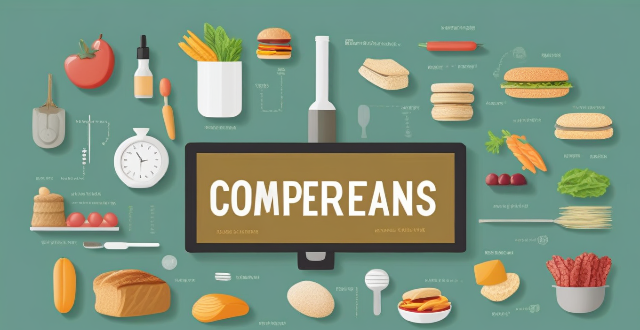
How can small food businesses ensure they are compliant with food safety regulations ?
The text provides a comprehensive guide on how small food businesses can ensure compliance with food safety regulations. It emphasizes the importance of compliance in protecting consumer health, avoiding legal consequences, and enhancing brand reputation. The steps for ensuring compliance include understanding the regulations, training staff, implementing GMP, using quality ingredients, monitoring and testing, and having a plan for non-compliance. Following these steps can help small food businesses meet legal requirements and assure customers of the highest standards in food safety, ultimately leading to customer loyalty and a strong brand reputation.
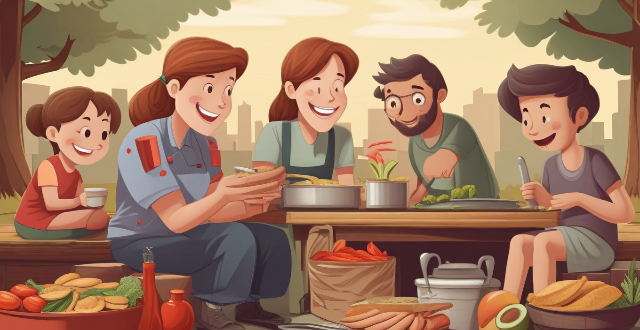
What are the health and safety considerations for organizing a food festival ?
Organizing a food festival requires careful consideration of health and safety measures to protect vendors and attendees. Key areas include sanitation and hygiene, allergy information and labeling, food safety inspections, first aid and emergency response, crowd management, fire safety, and cleanliness and waste management. By implementing these measures, you can ensure a safe and enjoyable event for all.
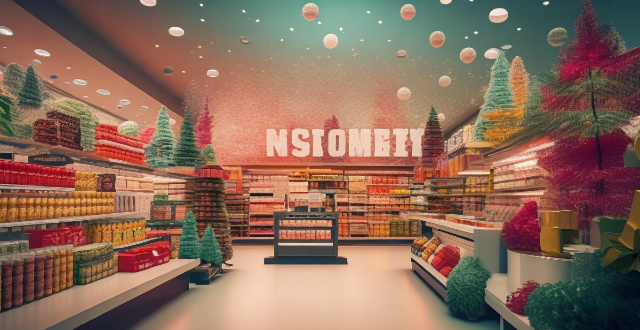
How can I avoid overspending during the discount season ?
During the discount season, it's important to avoid overspending. Here are some tips: set a budget, make a list of desired items, research prices, use cash or debit cards, avoid impulse buys, and shop online for better deals. By following these steps, you can enjoy discounts without overspending.

How do you safely eat street food while traveling ?
Eating street food while traveling can be a delicious and authentic way to experience local cuisine. However, concerns about hygiene and food safety can make some travelers hesitant. To safely enjoy street food, consider these tips: 1. Observe hygiene practices at the stall, such as cleanliness and food preparation methods. 2. Choose popular stalls where food turnover is high and locals are eating. 3. Start with small portions to test your tolerance for new flavors. 4. Be selective with proteins, avoiding raw or undercooked meats and seafood. 5. Drink only bottled beverages and avoid tap water. 6. Use common sense; if something doesn't look or smell right, move on. 7. Have hand sanitizer ready and pack wet wipes for cleaning utensils. 8. Clearly communicate any allergies or dietary restrictions in the local language. 9. Enjoy the experience but don't overdo it; pace yourself and maintain a balanced diet. By following these guidelines, you can minimize risks and fully enjoy the authentic culinary experiences that travel offers.
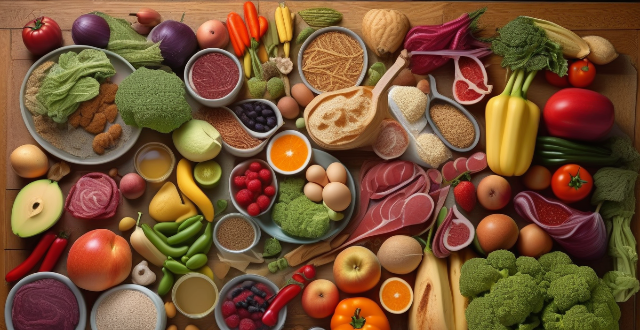
Why is personal hygiene important for those who handle or prepare food ?
Personal hygiene is critical for food handlers due to its impact on health, safety, and quality assurance. Cross-contamination and allergen transfer can lead to illnesses, while cleanliness affects food presentation and flavor. Handwashing, proper grooming, and workstation cleaning are essential practices to maintain hygiene.

What are some common mistakes beginners make in food photography ?
Food photography is an art that combines culinary knowledge, visual aesthetics, and technical skill. Beginners often make mistakes such as inadequate lighting, poor composition, using inappropriate props, focusing issues, incorrect white balance and color settings, improper camera settings, lack of attention to details, post-processing missteps, ignoring the audience, and facing technical challenges. By being aware of these common errors, beginners can learn to avoid them, resulting in better, more professional-looking food photographs.
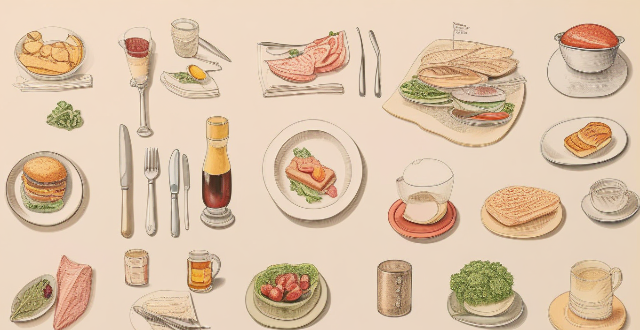
How can I plan a food-themed travel itinerary ?
How to plan a food-themed travel itinerary: determine your food interests and preferences, research destinations with strong food cultures, create a list of must-try dishes and restaurants, plan your itinerary around food experiences, book accommodations near food hubs, pack appropriately for food adventures, and be open to new experiences and embrace local customs.
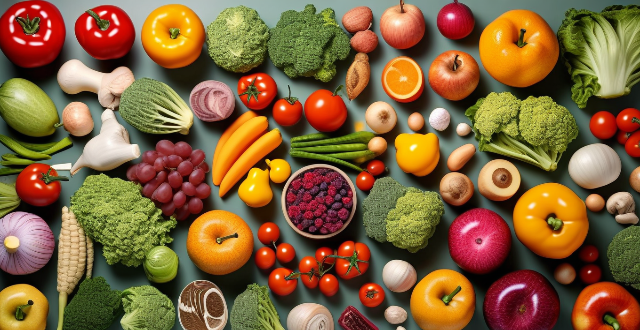
What are the key principles of food hygiene and safety ?
Food hygiene and safety are crucial in preventing foodborne illnesses and ensuring the well-being of consumers. Key principles include personal hygiene such as washing hands thoroughly, covering cuts and sores, avoiding contaminating surfaces, and wearing appropriate clothing; food handling including keeping food at safe temperatures, cooking food thoroughly, using separate utensils, and avoiding reusing cooking oil; sanitation such as cleaning equipment regularly, sanitizing surfaces, and controlling pests; and storage such as storing food properly, refrigerating leftovers promptly, and labeling and dating products. By following these principles, you can help protect yourself and others from foodborne illnesses and enjoy safe, healthy meals.
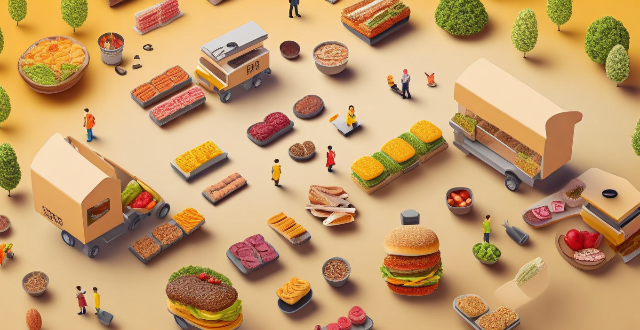
How can technology be used to enhance the food festival experience ?
Technology can enhance the food festival experience by offering convenience, customization, real-time updates, and interactive experiences. Online ordering platforms allow attendees to avoid long queues and have food delivered directly to their location. Mobile apps provide features like interactive maps, push notifications, and feedback systems. VR/AR technologies offer immersive experiences such as virtual food tours and interactive cooking classes. Incorporating these technological advancements into event planning can create a more enjoyable and memorable experience for all attendees while increasing engagement with the brand.

How do you create a visually appealing food photograph ?
How to Create a Visually Appealing Food Photograph: - Plan your composition with the right background, props, and dish orientation. - Light your subject using natural light, avoiding direct sunlight and using reflectors. - Set your camera on aperture priority mode with a low f-stop number and adjust the white balance. - Focus on the main subject and control depth of field to isolate it. - Style your food with freshness, different angles, and movement. - Edit your photos with color correction and cloning out unwanted elements. - Practice and review your work to improve.

How does proper cooking and baking contribute to food safety ?
Food safety is crucial for maintaining public health and preventing illnesses. Proper cooking and baking are vital components of food safety, as they can destroy harmful microorganisms that may contaminate raw ingredients. High temperatures during cooking and baking kill most bacteria, reduce viruses, and eliminate parasites. Additionally, proper cooking practices prevent cross-contamination by using separate utensils and cutting boards for different types of food. To ensure food safety during cooking and baking, it's essential to use a food thermometer to check the internal temperature of cooked foods, follow recipes and time guides, keep work surfaces and equipment clean, store raw and cooked foods separately, avoid overcrowding pans, and refrigerate leftovers promptly. By adopting these best practices, you can significantly minimize the risk of foodborne illnesses and enjoy safe, delicious meals.

How do I use chopsticks properly when eating Japanese food ?
Using chopsticks is an art form in Japan, and there are certain etiquette rules that you should follow to show respect for the culture. Here's a step-by-step guide on how to use chopsticks properly when eating Japanese food: 1. Holding the Chopsticks: Hold the first chopstick (the one closer to the tip of the food) like a pencil, resting it between your thumb and index finger. This is your stationary chopstick. Place the second chopstick (the one closer to the end of the food) underneath the first chopstick, resting on your ring finger. This is your moving chopstick. 2. Picking Up Food: Use the tips of the chopsticks to scoop up food rather than pincing it with the ends. This is considered more polite and traditional. For larger pieces of food, it's acceptable to use both chopsticks to pick them up. For smaller items, try using just one chopstick if possible. 3. Eating: If you need to dip your food in soy sauce or another sauce, do so lightly and minimally. Overdoing it can be seen as wasteful. Place the food in your mouth from the chopsticks without making any noise. Chew with your mouth closed. 4. Chopstick Etiquette: Avoid playing with your chopsticks, tapping them on the table, or leaving them standing in your food. These actions are considered impolite. Never use your chopsticks to point at people or gesture with them. This is rude and associated with funeral rites in Japan. Do not lay your chopsticks across your plate or bowl as this resembles incense sticks at a funeral. Instead, rest them on the chopstick rest provided or on the edge of your dish. 5. After Eating: It's common to wipe the ends of the chopsticks before and after use with the small towel or oshibori provided. If you're at a restaurant, leave the chopsticks as they are when you finish eating. Do not put them back in their original packaging or wrap them up. By following these guidelines, you'll not only avoid offending anyone but also show that you respect and appreciate Japanese dining culture. Remember, practice makes perfect!
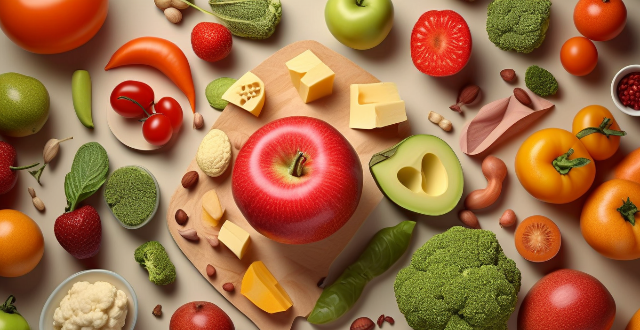
How important is composition in food photography ?
Composition is essential in food photography for creating visually appealing images. Techniques such as focusing on the subject, using negative space, incorporating leading lines, following the rule of thirds, and experimenting with color and contrast can enhance the visual appeal of food photographs.
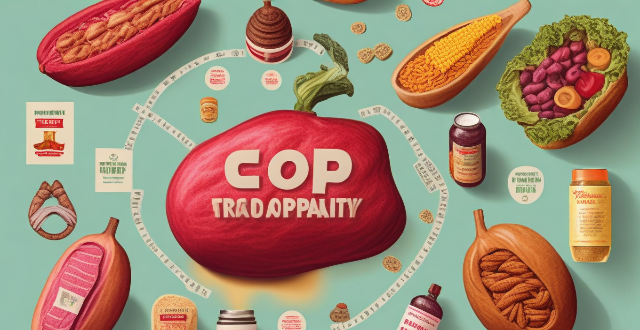
What is the significance of traceability in the food supply chain for food safety ?
Traceability in the food supply chain is crucial for food safety, enhancing transparency, facilitating recalls, improving quality control, supporting regulatory compliance, enabling better risk management, and promoting sustainable practices.